Do you ever feel like your mind is racing and you can’t slow it down? You are not alone. 92% of Americans now believe mental health is a serious issue. Studies show journaling helps. In one experiment, expressive writing cut depression scores by 30% in eight weeks.
If you want simple tools to improve your well-being, journaling prompts for mental health are a great place to start. Mental health journaling prompts guide us into our feelings and thoughts, offering an accessible and therapeutic way to explore our inner world. Journaling can help you process emotions, gain clarity, and build resilience.
In this blog I’ll share prompts that help you manage stress, tame anxiety, and support your mental health when life feels heavy.
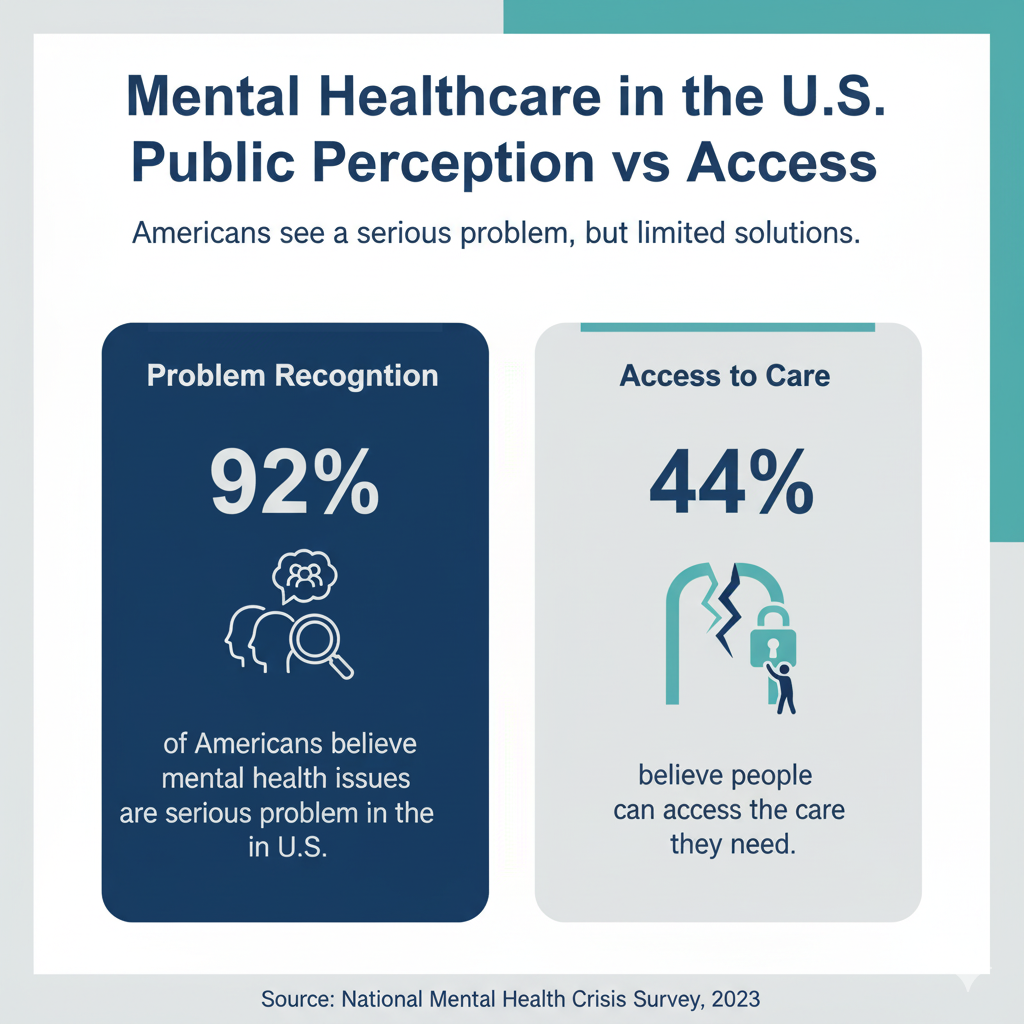
What Is Mental Health Journaling?
Journaling for mental health involves using structured or open-ended prompts to reflect on emotions, experiences, and thoughts. When you ask yourself meaningful questions or express feelings on paper, it becomes therapeutic. These mental health journaling prompts invite self-exploration and deeper introspection.
This form of writing is both accessible and impactful. All you need is a notebook or digital tool and a willingness to be honest with yourself. Whether you're calming anxiety, exploring a tough decision, or simply gaining perspective, journaling can be a personal practice that supports your emotional well-being.
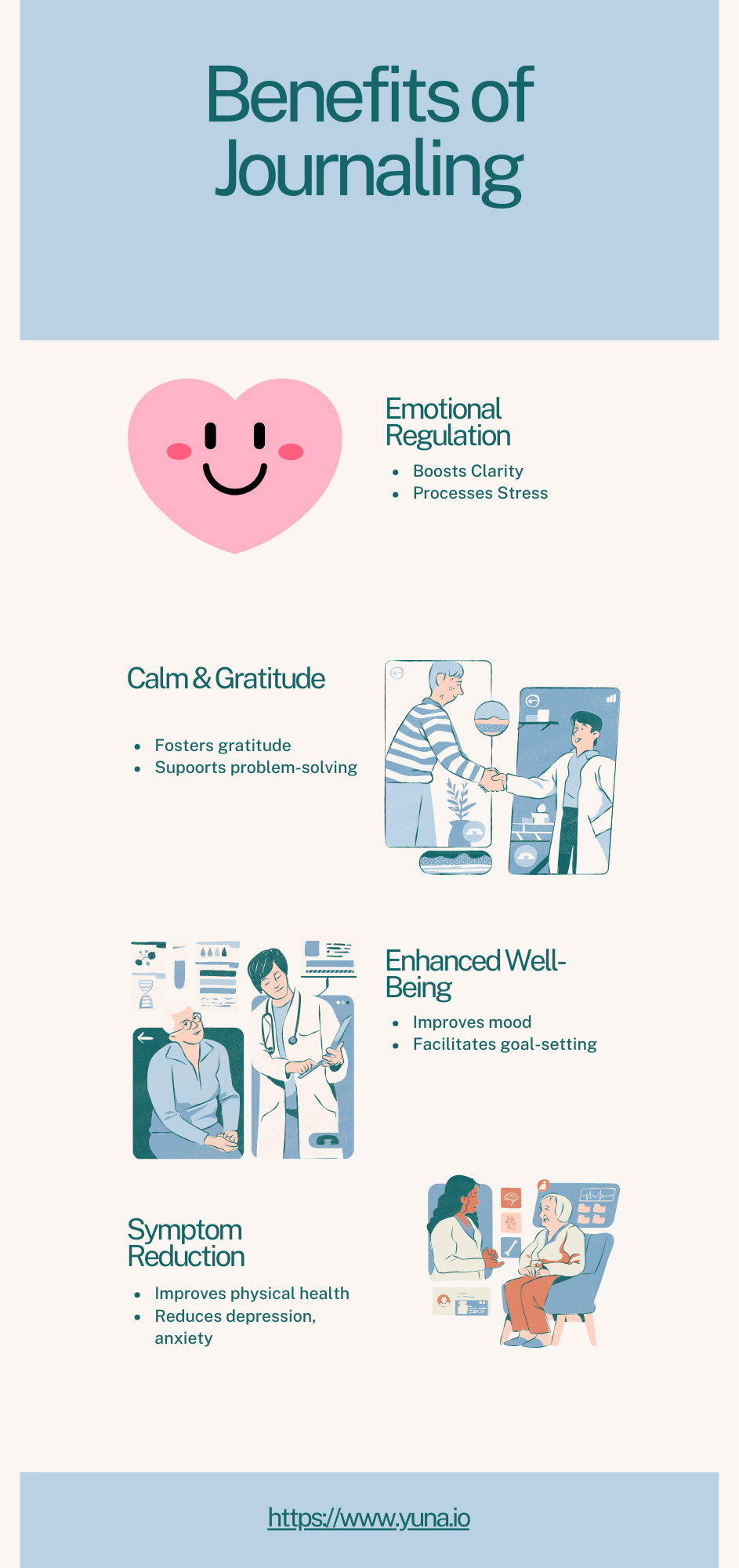
Benefits of Journaling for Mental Health
About 65% of people who write down their thoughts report better stress control, while 74% experienced better emotional release. Using journaling for mental health offers many well-researched benefits:
Better emotional regulation and self-awareness
Writing regularly boosts clarity and enables you to process stress and anxiety more effectively.
Calm and gratitude
Journaling creates a space for calm, promotes awareness, fosters gratitude, and supports problem-solving.
Enhanced well-being
Writing about your thoughts, including stressful or traumatic experiences, can improve mood, goal-setting, and overall mental health.
Symptom reduction
Recent studies show journaling can reduce symptoms of anxiety, depression, and PTSD by improving emotional regulation and even physical health.
Overall, journaling for mental health is a simple and powerful tool to feel more grounded, self-aware, and resilient.
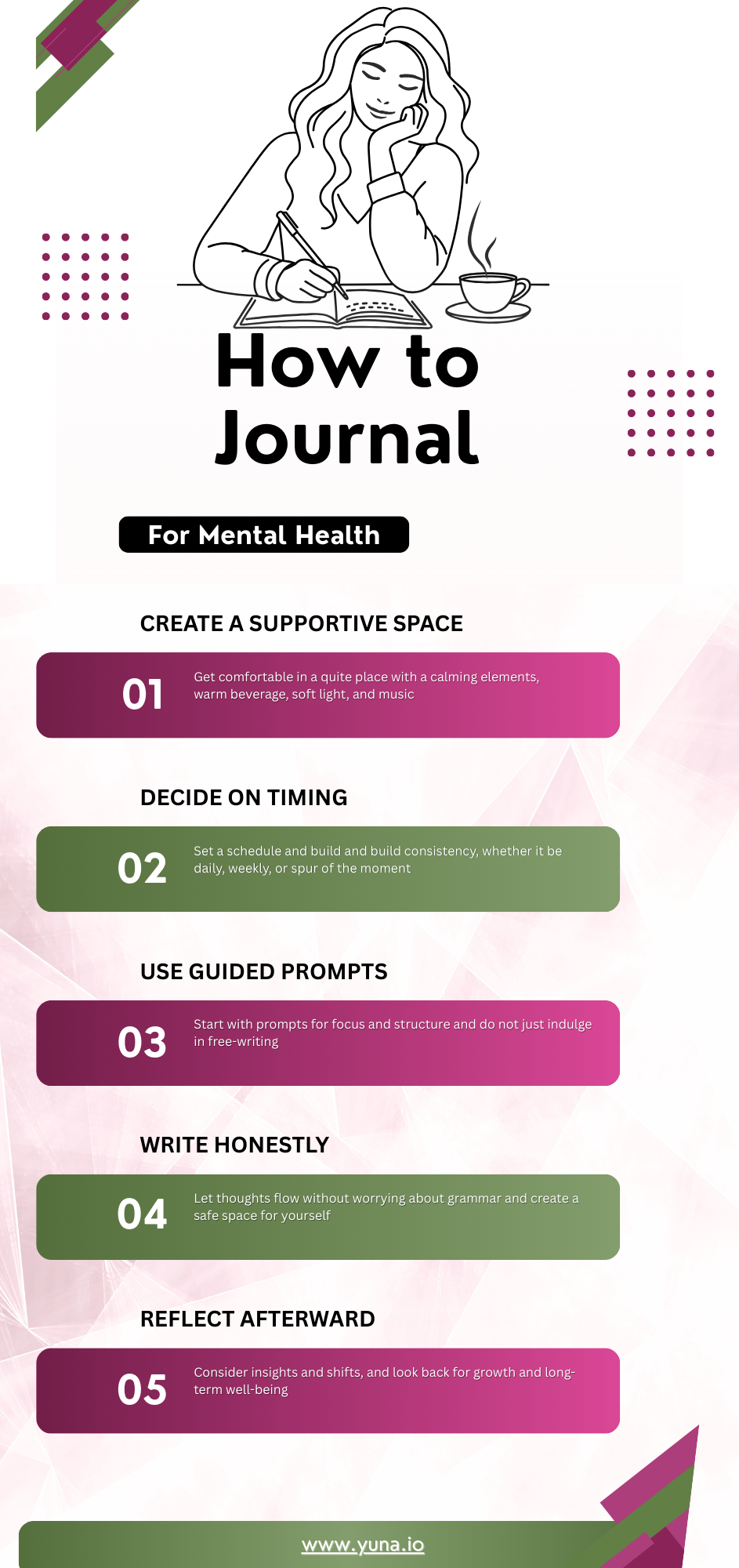
How to Journal for Mental Health
If you're wondering how to journal for mental health, here’s a clear plan:
Create a supportive space
Choose a quiet place with calming elements like soft light, a warm beverage, or gentle music to get comfortable.
Decide on timing
Journaling can be a daily, weekly, or spur of the moment practice. It can help to set a schedule that fits your rhythm like morning or bedtime. Routines help build consistency.
Use guided prompts
Start with guided journaling for mental health using carefully selected prompts rather than free-writing, to create focus and structure.
Write honestly
Let your thoughts flow and don’t worry about grammar or judgments. This is a safe space for your inner world.
Reflect afterward
After writing, take a moment to consider insights that came up or shifts in feeling. Over time, look back to see patterns or growth.
By following this process, you can build a journaling habit that supports long-term mental well-being.
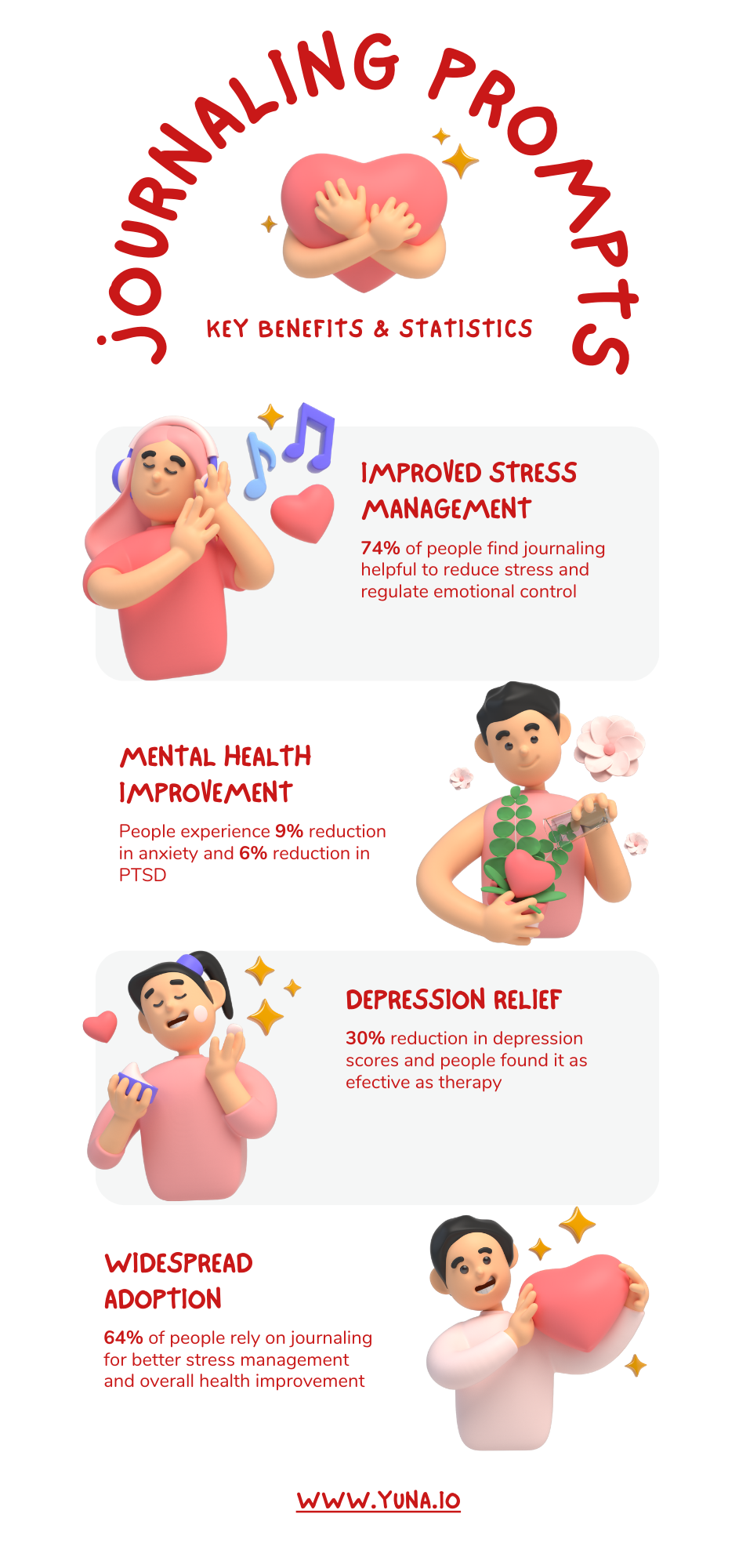
Examples of Mental Health Journaling Prompts
Here are structured categories with mental health journaling prompts to try:
Self-Reflection Prompts
- “What is stressing me out today, and what can I do about it?”
- “What do I like most about myself?”
Coping & Emotional Processing Prompts
- “What is a challenge you recently faced and how did you over come it?”
- “Write a love letter to yourself, celebrating your strengths and resilience.”
Gratitude Prompts
Goal and Growth Prompts
These sample prompts offer entry points for reflection, healing, and clarity.

Guided Journaling Techniques
There are various guided journaling techniques that can work for you. You can explore them and pick whichever fits best for you.
Release Journaling
Guided journaling for mental health begins with release journaling. It is a method that invites you to openly express difficult emotions, then shift toward compassion:
- Start free-writing for 10–15 minutes about what’s hard. For example, begin, “I’m angry because…”
- Then transition to writing opposites: peace, love, acceptance.
- End by meditating on positive feeling words to soften emotional intensity.
This method supports emotional processing and intentional healing.
Positive Psychology Interventions
How to journal for mental health also includes structured exercises like “Three Good Things” and “Best Future Self.”
- Three Good Things: Each night, write three things that went well. This daily focus shift boosts positive emotion.
- Best Future Self: Picture and write about a future where you’ve achieved a significant personal goal. This builds optimism and clarity.
These techniques foster hope and well-being through structured reflection.
Reflective & Self-Compassion Writing
Deep self-compassion comes from reflective exercises like writing letters to your younger self or shifting inner criticism with kindness.
- Write from the perspective of a compassionate friend or write to your younger you, offering comfort and understanding.
- These self-kindness letters promote emotional openness and healing
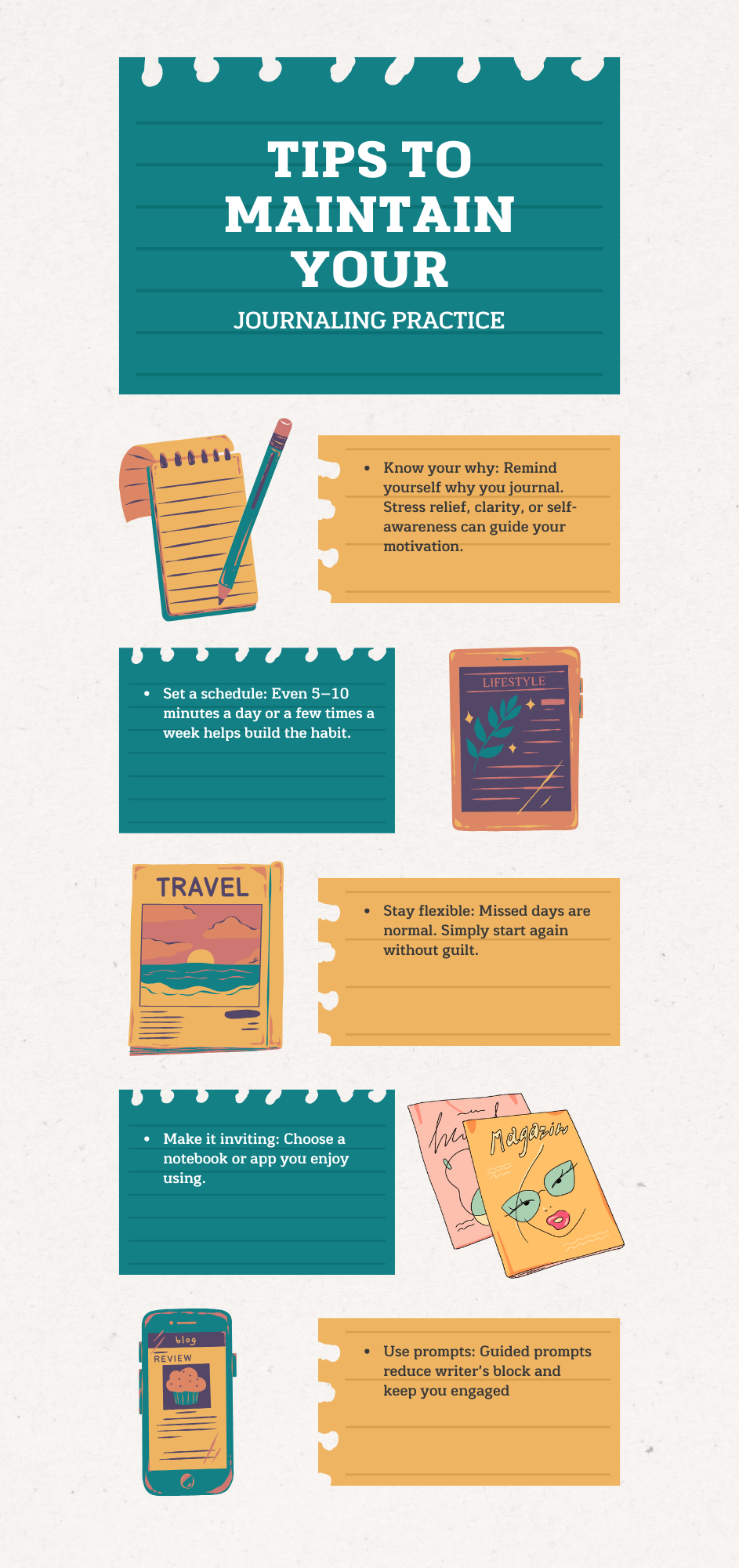
Tips to Maintain Your Journaling Practice
Consistency matters more than perfection. Here are tips on how to journal for mental health and make it part of your routine:
- Know your why: Remind yourself why you journal. Stress relief, clarity, or self-awareness can guide your motivation.
- Set a schedule: Even 5–10 minutes a day or a few times a week helps build the habit.
- Stay flexible: Missed days are normal. Simply start again without guilt.
- Make it inviting: Choose a notebook or app you enjoy using.
- Use prompts: Guided prompts reduce writer’s block and keep you engaged
Small and realistic routines are more likely to last. Over time, they deliver real benefits for mental health.
Mental Health Journaling with Yuna
Journaling for mental health is more than writing. It is a daily practice that supports balance, clarity, and resilience. Journaling also led to 9% fewer anxiety symptoms and 6% fewer PTSD symptoms in intervention groups. With the right prompts and guided techniques, you can process emotions, reduce stress, and strengthen self-awareness.
At Yuna, we believe mental health support should be simple and accessible. We are always here to support you during distress. We understand that people have lost some of these companionship programs due to their shutdown in last couple of years but we are here and will stay here for you. Just as journaling offers a private space for reflection, Yuna’s Digital Assistance Program (DAP) provides always-on, AI-powered support for emotional well-being. Together, they form powerful tools for healthier and more engaged lives.
Start with one journaling prompt today, and let both Yuna and your own words guide you toward greater clarity and emotional strength.
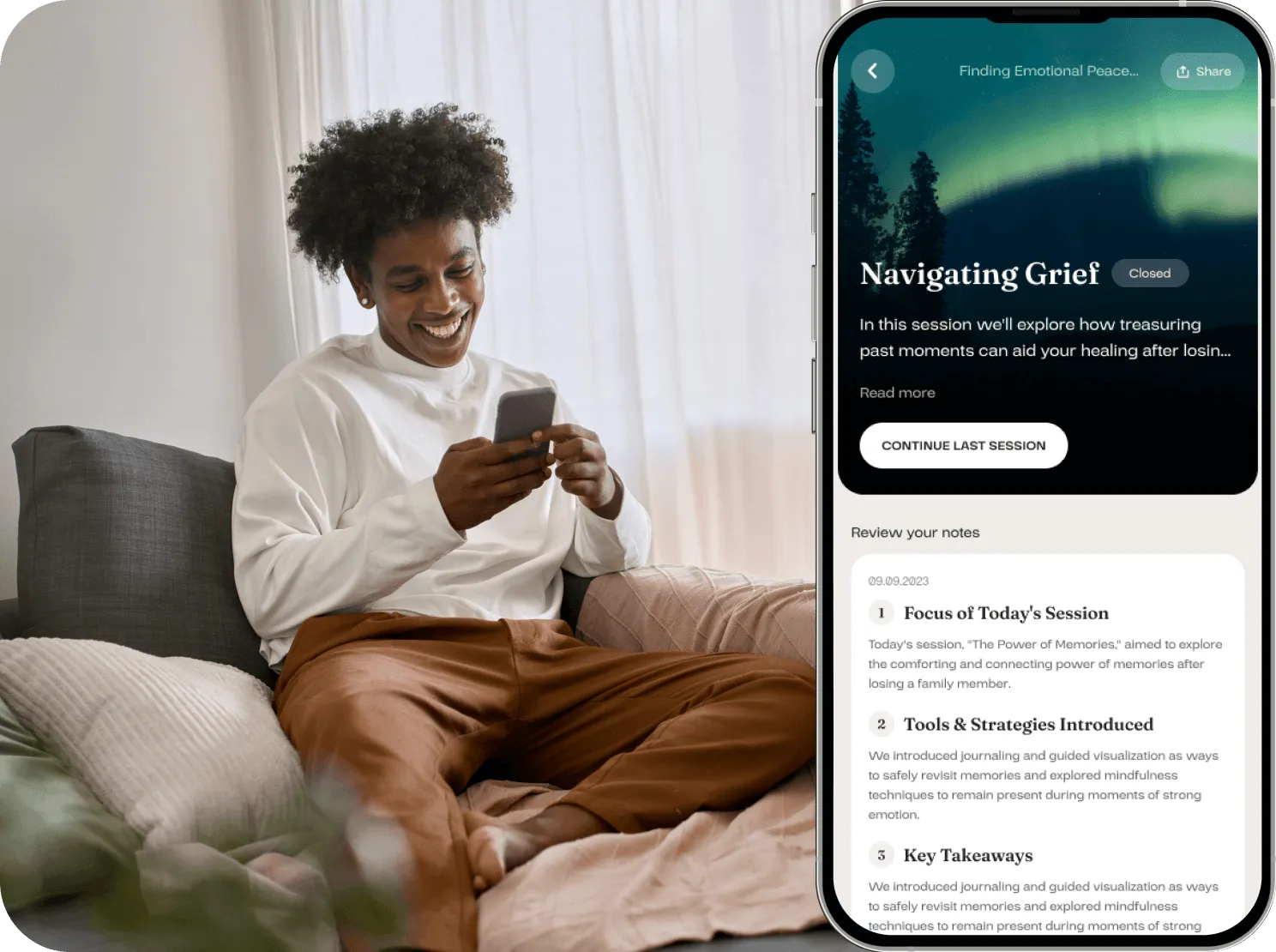
Frequently Asked Questions (FAQs)
What is journaling for mental health?
Journaling for mental health is the practice of writing with intention to explore your thoughts and feelings. It uses prompts and reflection to improve self-awareness, reduce stress, and support emotional well-being.
How does journaling help mental health?
Journaling helps organize your thoughts, process emotions, and build clarity. It reduces stress, strengthens emotional regulation, and creates a safe space for reflection and growth.
Can guided journaling improve emotional wellbeing?
Yes. Guided journaling for mental health uses structured prompts like “Three Good Things” or reflective letters. These techniques deepen self-awareness, boost optimism, and help heal emotional struggles.
How often should one journal for mental health?
You can journal daily, weekly, or whenever it feels helpful. The key is consistency. Even five minutes a day can build lasting benefits for clarity and emotional balance.
What are some journaling prompts for mental health?
Prompts include: What are three things you are grateful for today?; What challenge taught you something important?; or Write a letter of kindness to yourself. These encourage reflection and growth.










